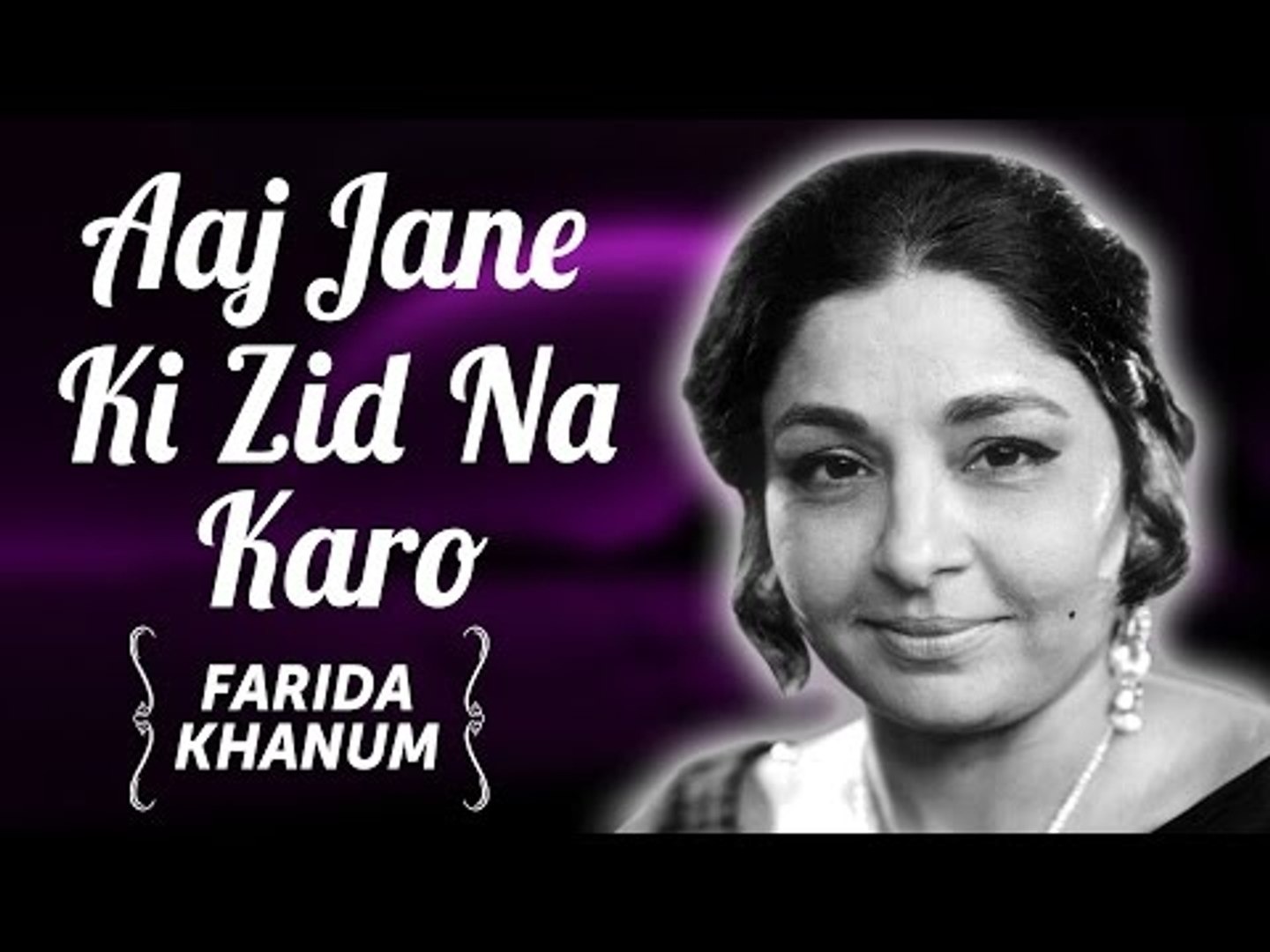"Aaj Jaane Ki Zid Na Karo," written by Fayyaz Hashmi and Sohail Rana, is not merely a song but a timeless philosophy of love, yearning, and the poetry of grasping something that will last only for an instant. Originally popularized by Habib Wali Mohammad and later made immortal by Farida Khanum, this ghazal has crossed borders, languages, and generations to become a collective emotional experience. Its renewed popularity in recent public discourse, particularly after the Supreme Court declared Urdu as an integral part of Indian heritage, has once again sparked debates on its cultural and emotional appeal.
Key Points
Origins and Musical Journey
Composed by Pakistani poet Fayyaz Hashmi and Sohail Rana, the song was originally sung by Habib Wali Mohammad for the movie Badal Aur Bijli (1973).
Farida Khanum's version in the 1980s on Pakistan Television and during live concerts gave the song iconic status, and it became a household favorite in South Asian homes.
The song is composed in Raag Yaman Kalyan, which gives it its ageless, soulful flavor.
Lyrics and Emotional Resonance
The words are a lover's entreaty to their loved one to linger a while longer, enjoying the moment and defying the inevitability of separation.
Catchy lines such as "Waqt ki qaid mein zindagi hai magar, chand ghadiyan yahi hain jo aazad hain" ("Life is imprisoned by time, but these few moments are free") sum up the philosophy of living in the now.
The song's simplicity and emotional resonance have turned it into a universal anthem of love, desire, and the bittersweet quality of leaving.
Cultural and Generational Influence
"Aaj Jaane Ki Zid Na Karo" has been covered and performed by many musicians, including Asha Bhosle, and used in movies such as Mira Nair's Monsoon Wedding.
It has become a cross-generational ceremony during get-togethers, weddings, and family reunions, evoking communal nostalgia and emotional communion.
The song's popularity is not only in its melody but also in its potential to cross the boundaries of language and culture to bring people together through shared sentiment.
Philosophy and Legacy
The ghazal offers lessons in restraint, patience, and the superiority of presence over possession, and it encourages listeners to stop and appreciate fleeting moments.
It is a testament to the healing power of poetry and music to unite, heal, and inspire empathy, providing "grammar for grief, rhythm for rage, and language for longing."
Farida Khanum's performances, characterized by elegance and emotional depth, have become synonymous with the song's philosophy, transforming every performance into a living prayer and a silent rebellion against the pace of modern life.
Conclusion
"Aaj Jaane Ki Zid Na Karo" is not merely a song, but a living philosophy-an offer to slow down, feel, and respect the moment. Its sustained popularity and emotional resonance are a measure of the timeless charm of Urdu poetry and the timelessness of human yearning.
Sources: Indian Express, Wikipedia, Cafe Dissensus, Talk the Walk (WordPress), Brown Pundits

